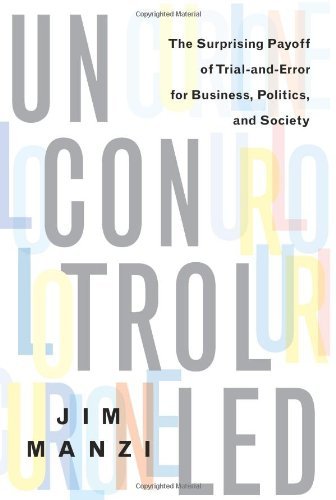What do you think?
Rate this book


Unknown Binding
First published May 1, 2012
[Imported automatically from my blog. Some formatting there may not have translated here.]
The book's subtitle is "The Surprising Payoff of Trial-and-Error for Business, Politics, and Society." To get there, Manzi starts in a surprising place: the philosophy of the scientific method, going back to folks like Aristotle and Francis Bacon.
Which makes sense, sort of. While the scientific method has successfully managed to grow our knowledge of the physical world, its applicability to figure things out in other fields is problematic. Determining how long to fire a rocket engine in order to have your space probe hit the Martian atmosphere at precisely the right location and angle—that's simple in comparison with (say) figuring out how to price thousands of items in your store in order to maximize revenue.
Manzi argues that it's possible to "do science" in matters of what he calls "high causal density": specifically, cases involving the behavior of large numbers of people. While the classic "controlled experiments" of science don't translate well to this arena, the technique of "randomized field trials" shows more promise. It's a technique already widely used in business and (some) social sciences. Manzi urges its wider adoption in political issues as well.
At the end of the book, Manzi discusses how his insights might apply to education, immigration, and welfare. This bit will appeal to political types who want policies that "work". (As opposed to political types who say they want policies that work, which just happen to be the policies demanded by their political party.)